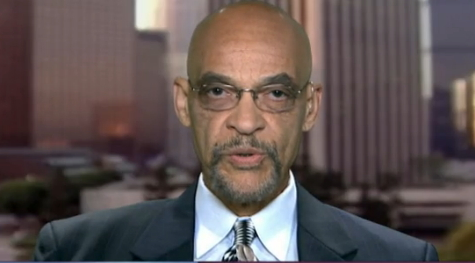Earl Ofari Hutchinson
George Washington, Thomas Jefferson, Andrew Jackson, William McKinley, Woodrow Wilson, Herbert Hoover, Richard Nixon and, of course, Donald Trump. They are American presidents that have one thing in common. They have been the targets of campaigns to get their names wiped off of public places. They were accused of being unabashed slaveholders, committed racist acts, are simply had an odor to their name. The fierce debate over removing their name from these places usually came after some shocking public revelation about their alleged bad deeds.
Now it’s Ronald Reagan’s turn. In his case, it was the release by the National Archives of a private conversation Reagan had with then president Nixon in 1971. An enraged Reagan in an unguarded moment spewed a string of epithets about African delegates rejoicing over the admission of China to the UN. They were “monkeys” “without shoes.” It was disgusting, shocking, and it was called that by none other than Reagan’s daughter, Patty Davis, in a widely circulated op-ed.
But does that call for a president revered by the GOP and millions of Americans as practically a deity to be scrubbed from a state office building in Los Angeles for his naked bigotry? Whether that’s the case, it does force a relook at Reagan’s often forgotten, ignored, or apologized for racial sins. And they were sins.
Reagan and Reagan officials waged a well-documented open war against civil rights leaders and did everything politically possible to roll back civil rights gains during his eight years in office. That war began months before he took office. At his now infamous presidential kick-off campaign rally at Neshoba, Mississippi in 1980, held virtually a stone throw from where the three civil rights workers were murdered in 1964, Reagan shouted to a lily white crowd that “I believe in states’ rights.” He laced his campaign speech with stock racial code words and phrases, blasting welfare, big government, federal intrusion in state affairs, and rampant federal spending. The message was that if elected he’d not only say and do as little as possible to offend the white South, but actively undermine civil rights. At his first press conference the week after his inauguration, Reagan repeatedly lashed out at affirmative action programs.
That was just the start. During the 1980 presidential campaign, he publicly branded the voting rights act “humiliating to the South.” The implication was that he would not back an extension of the Voting Rights Act when it came up for renewal in 1982. He backed away from that only in the face of strong support from Congressional democrats (and many Republicans).
The checklist of Reagan anti-civil rights initiatives grew to be telephone book thick. They included his gut of the Civil Rights Commission, his attempt to eliminate and slash and burn of an array of federally funded job and training programs, his borderline racist depiction of welfare recipients as “queens,” his stack of the federal judiciary with strict constructionist, states’ rights leaning judges, the wave of Reagan approved Justice Department indictments, prosecutions and harassment of black elected officials, his foot drag on imposing congressional mandated sanctions on then apartheid South Africa, and his repeated mock of civil rights leaders.
The Reagan assault on civil rights was so intense that the Leadership Conference on Civil Rights in 1982 issued a lengthy report that meticulously documented the measures the Reagan Administration Justice Department and especially its Civil Rights Division did to stymie and obstruct enforcement of civil rights laws. Then there was his dogged fight to prod the IRS to reverse its decision to deny a tax exemption to all white Bob Jones University in South Carolina in 1982. Reagan backed away from this only after a firestorm of congressional and public outrage at his naked effort to prop up a blatantly segregated institution.
The one civil rights act that Reagan is praised for as an example of his racial enlightenment, the signing of the King Holiday Bill, was anything but that. Reagan staunchly opposed the King Holiday bill. And he did not oppose it as later historical revisionists claim solely for cost reasons, that is that the federal government couldn’t afford to give federal employees another day off. This is the politically palatable cover.
At a press conference October 19 two weeks before he grudgingly signed the bill he quipped that he’d sign it only “since [Congress] seem bent on making it a national holiday.” It took every ounce of the congressional bent that Reagan ridiculed to get him to put his signature on the bill.
Reagan didn’t stop at simply voicing reservations about Congress’s action in passing the bill. At the same press conference, he also added with a wink and a nod that the jury was still out on whether King was a communist sympathizer or not. Reagan revealed even more of his true thinking about King in a letter. He unapologetically said that the public’s view of King was “based on image, not reality.” Reagan was roundly criticized for besmirching King, and he subsequently publicly apologized to King’s widow, Coretta Scott King. In assailing King, Reagan simply followed the well-worn ultra-conservative and racist script that King was a radical, racial agitator, and a closet communist.
Removing Reagan’s name from a public building won’t change that history. However, the call for that removal does force a painful but necessary reappraisal of what Reagan was really about on the one issue that still torments Presidents, and that’s race.
Earl Ofari Hutchinson is an author and political analyst. He is the author of Why Black Lives Do matter (Middle Passage Press)
He is a weekly co-host of the Al Sharpton Show on Radio One. He is the host of the weekly Hutchinson Report on KPFK 90.7 FM Los Angeles and the Pacifica Network.

